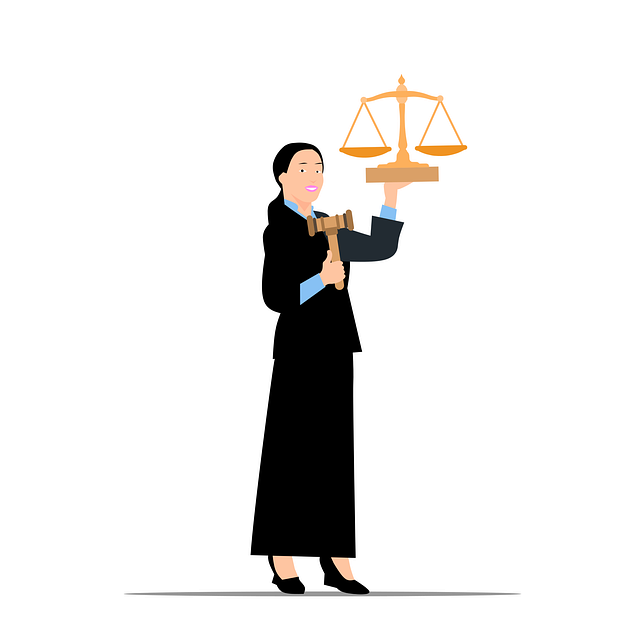White-collar crime, characterized by financial and business offenses, often involves schemes like fraud and embezzlement, making them hard to detect. Mitigating penalties, crucial for reducing sentences or charge dismissals, include cooperation with authorities and showing remorse. Skilled criminal defense attorneys specialize in navigating these complexities, uncovering mitigating factors, and presenting compelling narratives to ensure fair outcomes. In Mitigating Penalties in White-Collar Crime Cases, lawyers employ strategic techniques throughout the investigative process, challenging prosecution narratives and achieving favorable outcomes like reduced charges and sentences.
In the intricate landscape of criminal law, white-collar crime cases present unique challenges. This article delves into the nuanced world of understanding and defending against these offenses, focusing on mitigating penalties. From defining common white-collar crimes to exploring the impact of mitigating factors, it offers a strategic guide for lawyers. Through real-world case studies, we uncover successful techniques that demonstrate how effective mitigation can revolutionize outcomes in white-collar crime cases, emphasizing the critical role of legal strategies in navigating these complex scenarios.
- Understanding White-Collar Crime: Definitions and Common Offenses
- The Role of Mitigating Factors in Sentencing White-Collar Criminals
- Strategies for Lawyers: Building a Defense to Reduce Penalties
- Case Studies: Successful Mitigation Techniques in Real-World Scenarios
Understanding White-Collar Crime: Definitions and Common Offenses

White-collar crime is a broad term encompassing various financial and business-related offenses committed by individuals or organizations in positions of trust. These crimes often involve complex schemes, fraud, embezzlement, and corruption, typically carried out with the intent to gain financial advantage. Unlike traditional street crimes, white-collar offenses are usually non-violent and can be challenging to detect due to their intricate nature and subtle impact on victims. High-stakes cases involving white collar and economic crimes have become a significant concern across the country, as they often result in substantial financial losses for individuals and institutions alike.
Understanding these crimes is crucial when mitigating penalties in white-collar crime cases. Common offenses include fraudulently obtaining loans or investments, tax evasion, money laundering, and bribery. The legal system recognizes that these cases require a nuanced approach, focusing on the intent, impact, and unique circumstances of each situation. Mitigating penalties can involve various strategies, such as cooperating with authorities, accepting responsibility, and providing valuable information to help prevent similar crimes in the future, which can lead to reduced sentences or alternative forms of punishment.
The Role of Mitigating Factors in Sentencing White-Collar Criminals

In white-collar crime cases, the role of mitigating factors in sentencing is pivotal. These factors, such as cooperation with authorities, remorse shown by the defendant, and lack of prior criminal history, can significantly influence the severity of the punishment. When a defendant presents compelling mitigating circumstances, it can lead to reduced sentences or even dismissed charges, offering a glimmer of hope for what might otherwise be harsh consequences. The focus shifts from punishment alone to considering the broader context of the offense, including extenuating personal or situational factors.
A skilled general criminal defense attorney understands how to navigate these complexities and present a winning challenging defense verdict. Their expertise lies in uncovering and emphasizing mitigating penalties, ensuring their clients receive a fair and just outcome. This strategic approach, backed by an unprecedented track record of success, can make all the difference for individuals facing white-collar accusations, helping them overcome seemingly insurmountable legal challenges.
Strategies for Lawyers: Building a Defense to Reduce Penalties

In navigating complex criminal law cases, particularly white-collar crime scenarios, lawyers play a pivotal role in crafting effective strategies to build robust defenses. One of the primary goals is to mitigate penalties for their clients. This involves meticulous preparation and an understanding of both the legal nuances and the unique circumstances surrounding each case. By employing strategic tactics, attorneys can significantly influence the outcome, aiming for outcomes that reflect justice while reducing harsh sentences.
A successful defense strategy often focuses on presenting a compelling narrative that humanizes the accused, highlighting mitigating factors that set them apart from typical perpetrators. This may include uncovering and exposing any underlying circumstances or motivations that contributed to the crime without justifying it. In cases where an unprecedented track record of achievements in securing winning challenging defense verdicts across the country is evident, it demonstrates the expertise and tenacity of counsel, further reinforcing the argument for reduced penalties.
Case Studies: Successful Mitigation Techniques in Real-World Scenarios

Successful mitigation strategies play a pivotal role in securing favorable outcomes for defendants involved in white-collar crime cases. Case studies reveal that competent legal counsel can significantly mitigate penalties by employing tailored approaches throughout all stages of the investigative and enforcement process. Through meticulous investigation, defense attorneys uncover exculpatory evidence, challenge the prosecution’s case, and present compelling arguments to sway the judge or jury.
One proven technique involves crafting a comprehensive general criminal defense strategy. By examining the nuances of each case, lawyers identify weaknesses in the prosecution’s narrative and construct robust defenses. This has led to numerous winning challenging defense verdicts, demonstrating the effectiveness of proactive mitigation techniques in reducing charges and sentences for individuals accused of white-collar offenses.
In conclusion, understanding white-collar crime and effectively employing mitigating factors during sentencing are key to navigating these complex cases. By exploring strategic defenses and learning from real-world case studies, lawyers can significantly impact outcomes for clients facing charges. Mitigating penalties in white-collar crime cases is not just about reducing punishment; it’s about ensuring justice is served while considering the unique circumstances that led to the offense.






